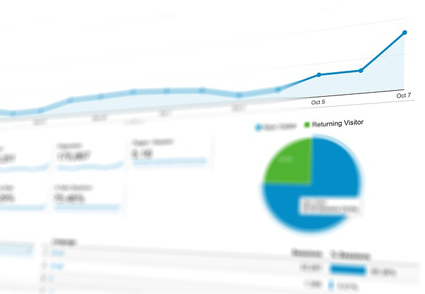Can you handle the truth about your marketing data?
Daniel Keys Moran, American author and computer programmer, is quoted as saying: "You can have data without information, but you cannot have...

Are you using paid search advertising to try to connect with new customers online?
If so, there are a number of best practices to follow, as well as some common pitfalls of paid search advertising to avoid.
Whether you're using Google AdWords, the Yahoo Bing Network, Facebook or LinkedIn ads, or another pay-per-click (PPC) network, this blog article will identify some common paid search traps, and how you can avoid them to deliver a successful ad campaign.

Blast your way out of paid search traps by focusing on metrics, creating
mobile-friendly campaigns, and other methods. ![]()
While PPC done right is a cost-effective marketing method, failing to focus on the ROI of your PPC campaigns is a costly mistake. Just like any other form of marketing, there are some key elements to consider for tracking purposes. They are:
SearchEngineWatch.com sums it up this way: "The point is, you must determine the point of your PPC campaign, and then set up tracking accordingly."
Because the algorithms for determining average quality score are somewhat of a mystery, it may be easy to discount quality score as a valuable metric. Hubspot highlights the reason average quality score should be an important metric to you, saying: "Average Quality Score is an extremely good predictor of overall account success, as it directly affects your rankings and cost per click (CPC). Lower CPCs translate into lower costs per conversion, so optimizing for Quality Score is essentially the same as optimizing for costs."
>> Want a few more tips on creating effective PPC campaigns? Check out another one of our articles: Don’t be afraid of PPC: 4 tips to get the most of paid search efforts.
With PPC campaigns, there are a number of mistakes that can lead to budget depletion quickly if not caught. SearchEngineWatch.com makes this suggestion: "Accurate conversion tracking is so important that it's a good idea to perform a regular conversion audit to make sure you're tracking everything you want and need to be tracking. Periodically check all your URLs to make sure the pages are still live. And, as with all the other mistakes, check results frequently!"
Paying for keywords that are irrelevant is a costly error. Remember the maxim that you want high quality traffic rather than just an influx of visitors who can end up costing you money with no intention of converting.
In this situation, negative keywords come to the rescue. PPC.org states: "If you use negative keywords, this can help weed out the unwanted and expensive traffic that will not convert."
SEW's "The 5 Biggest Don'ts of Paid Search" offers this suggestion for negative keyword use: "Make sure that, every time you launch a new account, campaign or ad group, you incorporate negative keywords. Add it as an audit point in your launch checklist and verify during your final QA process. When adding negatives, also check the keywords that you are bidding on via a search - you may find that there are multiple meanings for your terms."
If your PPC campaign does not take the mobile experience into account, you are missing the bus. Hubspot's "The Worst Mistakes PPC Beginners Make (And How to Avoid Them)" emphasizes the importance of mobile optimization. According to the article, research indicates that mobile users are quicker to convert, and often do so at a lower cost per click.

Effective mobile landing pages will significantly increase conversion rates
and, therefore, the overall ROI of your PPC campaign. ![]()
Paid search advertising requires focus and flexibility. By focusing on your conversion metrics, paying attention to your average quality score, checking your account often, using the appropriate negative keywords to filter out unproductive traffic, and creating mobile friendly campaigns, you can use PPC marketing to your advantage.
Wondering which metrics are the best to track for your PPC campaigns and other marketing efforts? To find out, get your free copy our our download The Six Marketing Metrics Your Boss Actually Cares About.
Make sure to connect with us on LinkedIn to get valuable insight on the latest news in marketing and website design. Follow us here:

Daniel Keys Moran, American author and computer programmer, is quoted as saying: "You can have data without information, but you cannot have...

Here's a reality check. If you are not measuring the ROI of your inbound marketing strategy, you are misleading yourself about the effectiveness of...

A sales process is a repeatable and scalable set of steps a salesperson follows to transform a lead into a potential customer into a conversion. The...